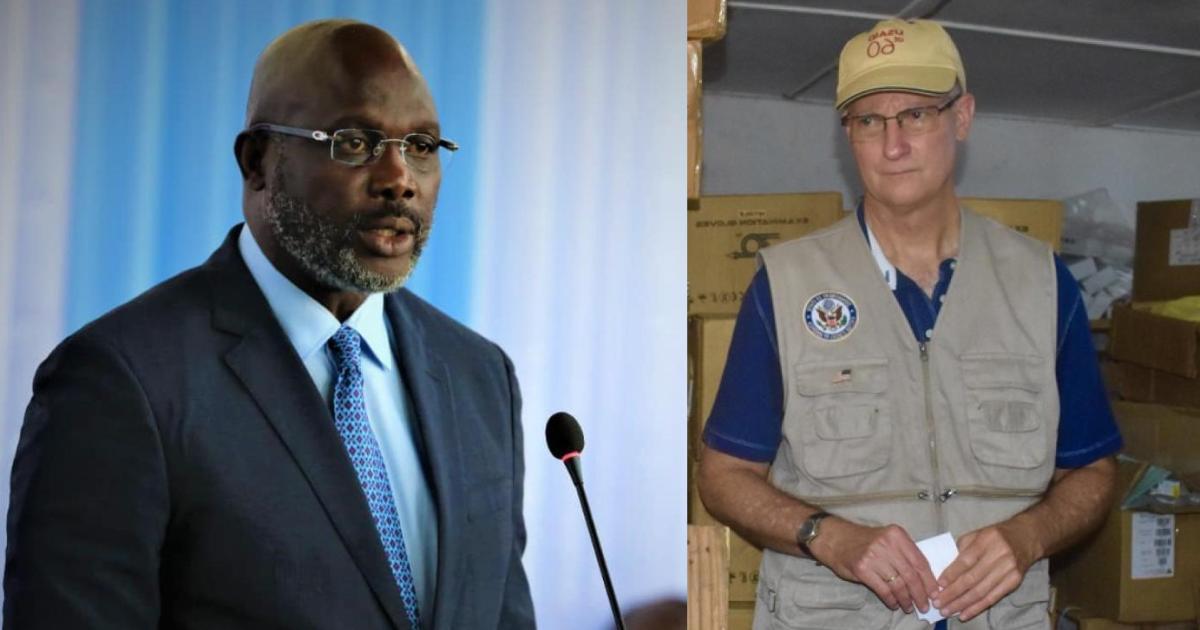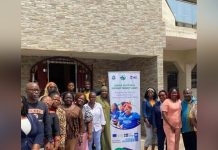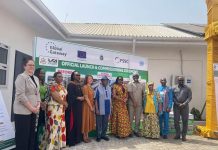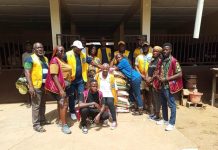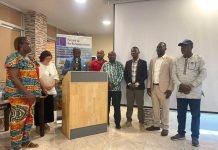TINA S. MEHNPAINE
Africa-Press – Liberia. The administration of President George Manneh Weah has described as ‘inaccurate’ an assertion by US Ambassador Michael McCarthy that the government has neglected public health facilities across the country.
McCarthy in a write-up on Monday accused the government of not disbursing any portion of the US$100,000 or more appropriated by the legislature for hospitals on which lives depend.
“I [am] startled and deeply troubled to encounter multiple county hospitals that received not one penny of what they were promised in the 2022 budget,” the ambassador said.
However, McCarthy’s assertion, according to the Weah administration, is inaccurate, as funding for public health facilities has been disbursed as appropriated in the 2022 budget.
RELATED ARTICLE: House Votes to Increase Support for ‘County Hospitals’ in 2023 Budget
According to the government, its efforts in reviving healthcare and education have gotten much acclaim from various bilateral and multilateral partners despite global economic challenges.
Healthcare, the Weah government said, is one sector in which the government continues to expand its efforts to increase coverage in order to meet the needs of millions of Liberians, “as well as hone the skills of service providers.”
“While the government recognizes that there is always room for improvement, particularly in the allocation and disbursement of funds for essential services, the narrative as expressed by Ambassador McCarthy is inaccurate,” Ledgerhood Rennie, the Minister of information, said in a release.
“Data from the Ministry of Finance and Development Planning and validated by the Ministry of Health [proof] cash disbursement to health facilities nationwide for the year ended the fiscal year 2022. Under FY2022, about US$7.2 million was disbursed to more than 70 hospitals, clinics health centers across Liberia. This amount represents operational activities and excludes salaries of employees, rent, drugs, and vaccines, which are provided by the government or with the assistance of development partners.”
“The top 10 receivers in the report account for about US$3.8 million of the total US$7.2 million disbursed to the 70 plus health facilities across Liberia. The top 10 receivers include referral hospitals such Jackson F. Doe, CB Dunbar, Phebe hospital school of Medicine, Telleweyon John F. Kennedy Memorial, and Redemption Hospital,” Rennie added.
RELATED ARTICLE: “Is This the Best Liberia Can Do?”
McCarthy, in his writeup, cited the case of Tellewoyan Memorial Hospital, a 135-bed hospital in Lofa County, which he says like many public hospitals in rural Liberia, has been left to survive on the shoulders of “dedicated health workers” — scraping together whatever they can.
The US envoy also noted that in one town, administrators look with anticipation mixed with fear at the brand-new, modern hospital that sits vacant, knowing that they can barely keep the existing makeshift facility going, and running the new one will require ten times the resources.
The new hospital that McCarthy is indirectly referring to is the state-of-the-art Emirates Hospital in Gbarpolu County, one of the poorest counties in Liberia. Constructed with funding from the UAE government, a 100-bed capacity hospital comprises several operating theaters, a modern laboratory, an intensive care unit (ICU), and various specialized departments and would need more than a million dollars to run.
It was built to replace the makeshift Chief Jallah Lone Hospital, which is currently struggling with funding and drug supply problems, according to its administration.
“Tellewoyan Memorial Hospital in Lofa County currently survives on the backs of incredibly dedicated health professionals, making do with whatever they can scrape together,” McCarthy added. “As for me, should the U.S. Congress ask how the elite in Monrovia are treating destitute citizens in the leeward counties, my honest response would have to be, those citizens are treated with a neglect that borders on contempt. Is this the best that Liberia can do?”
The situation with Chief Jallah Lone, Tellewoyan, and other hospitals has made McCarthy question whether the government would be able to fully fund the ruling of a US-funded National Reference Laboratory after its completion.
The Laboratory is being constructed at a cost of over US$40 million and, when completed, according to the US envoy, will require US$3 million to US$4 million a year from the government of Liberia to operate.
RELATED ARTICLE: Grand Bassa Gov’t Hospital Out of Fuel?
According to McCarthy, If the Government is failing to deliver statutory appropriations of only US$100,000 to existing hospitals, the US would find it hard to ever trust its annual pledges of US$3 million to run the laboratory.
Meanwhile, McCarthy has also lamented that the lack of funding for many County Service Centers across the country is a mockery of decentralization efforts as the center is no longer a one-stop-shop that addresses the challenges by bringing government services closer to the people.
The centers were established to address the challenge rural Liberians face in accessing documents such as birth certificates, business registration, and land deeds, among others.
However, McCarthy noted that none of the country’s 15 county service centers has now received the budgetary allocation of a little over US$13k for the 2022 budget year.
The US envoy cited the case of one center, which he says has not printed marriage certificates for four years as a result of a broken printer broke to illustrate how bad the neglect has been.
However, the Weah government, in response to the ambassador, also noted that it remains dedicated to investing in critical health infrastructure across the country as it builds clinics and hospitals.
The government added that while it remains grateful for the reference lab, it is more than prepared to run the facility when it is completed in a few years, citing the disbursement of hundreds of thousands of dollars in a resettlement action plan.
“Various initiatives are currently ongoing to train and retain healthcare professionals as a means of ensuring that all Liberians have access to quality healthcare services,” Rennie said. “As was announced by President Weah during his State of the Nation’s address, a revolving fund is also being set up to address the perennial problem of drug shortages at some facilities.”
“Similar efforts are being made in the educational sector as the Weah administration strengthens the free and compulsory primary education initiative, as well as the improvement of school infrastructure and the training and support of teachers. The government is also building new model schools and developing standard curriculums which have led to major improvements in students’ performance in WAEC/WASSE.”
RELATED ARTICLE: G. W. Harley Hospital In Nimba Faces Challenges
Meanwhile, the Weah government in its release did not address the issue of lack of funding for many County Service Centers across the country, which he says is a mockery of decentralization efforts.
The centers were established to address the challenge rural Liberians face in accessing documents such as birth certificates, business registration, and land deeds, among others.
According to McCarthy, virtually all of the centers while beautifully electrified over the past two years with UNDP-supplied solar power systems, have been reduced to forwarding paperwork to Monrovia periodically instead of making it available there.
“It is important, however, to clarify that the US$60 million referenced by the Ambassador is not money coming entirely to the government of Liberia, as has understandably been skewed by politicians — with an eye on the upcoming elections.
“Only a small fraction of Government-to-Government support, which is disbursed only after proof of performance, goes to the government. The rest is expended through USAID’s own funding mechanisms — directly to select project implementers,” Rennie said. “The Liberian government values the longstanding partnership it shares with the U.S. and believes that open communication between both governments is important to the sustenance of this historical tie.”
For More News And Analysis About Liberia Follow Africa-Press

